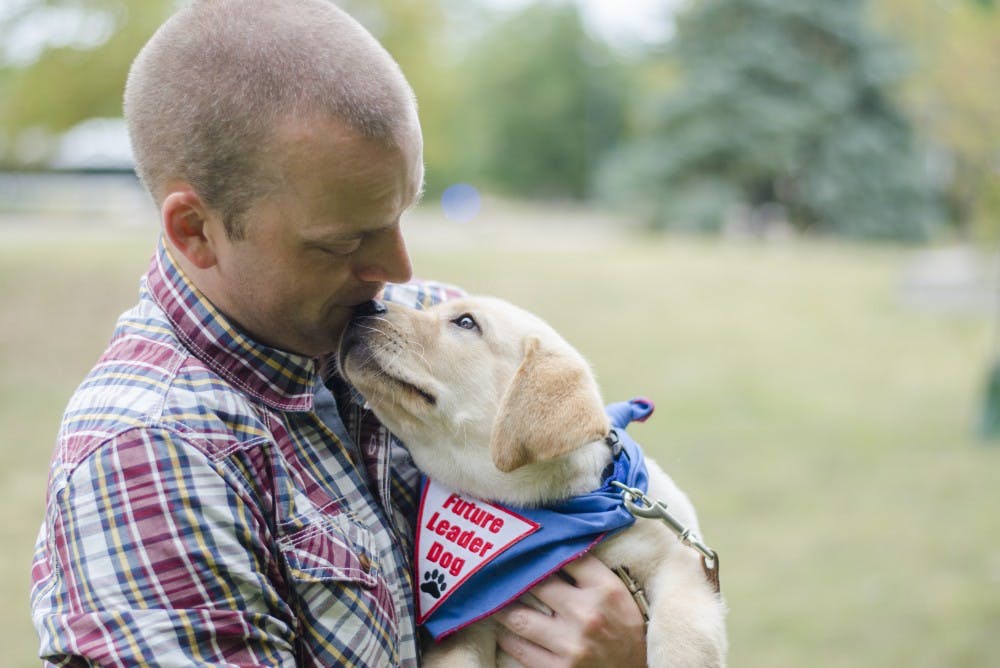Assistant Journalism Professor Robin Blom isn’t just imparting knowledge to students this year, he’s also teaching a yellow Labrador retriever puppy named Charlie.
And yes, the dog attends classes too.
Charlie is a 10-week-old aspiring guide dog from the Leader Dogs for the Blind organization in Rochester Hills, Mich.
The organization gives puppies to volunteers like Blom, who housebreak them and teach them basic commands and “good manners” — all to prepare them for additional guide dog training and, perhaps, a job helping a human who is blind or visually impaired.
Blom heard about Leader Dogs for the Blind from friends while he studied for his doctorate at Michigan State University. At the time, he didn't feel capable of training a puppy.
One doctorate and three years of work as a Ball State professor later, and Blom reconsidered the possibility. He has a better idea of the amount of work his job requires, he said.
On Aug. 26, Blom met Charlie for the first time. Blom will work with him for about a year. He won't get any compensation for the job, and he's also expected to cover Charlie's veterinary bills and dog food expenses. The Leader Dog organization did provide him with a leash, toys and a collar.
Blom's puppy-raiser duties include socializing Charlie by exposing him to different locations: the supermarket, basketball courts, football fields, airplanes and more.
Charlie needs to be around Blom for the majority of the day so he can soak up as much information as possible, Blom said.
That’s where school comes in. Charlie must occasionally attend classes with Blom.
Some of Blom’s students said they don’t mind their furry classmate.
“I feel like it’s a healthy distraction,” said Jala Washington, a junior in one of Blom’s classes. “It never really distracts you from paying attention in class, but it’s a refreshing change in the classroom to have an adorable dog to make you smile every once in a while.”
Washington isn’t the only person who responds well to Charlie.
“I have no problems here [in Muncie] at all,” Blom said. “A lot of people encourage it, because they understand that there is a need [for guide dogs].”
All that attention has a downside however.
No one is allowed to touch Charlie or interact with him while he is being trained — no matter how adorable he may be, Blom said. Charlie needs to understand that he is working when he is being trained and that he is being trained for a purpose.
People attempt to pet Charlie all the time, though, Blom said.
If a potential guide dog gets easily distracted when it is young, it may also get easily distracted as it gets older, and while it is supposed to be helping its human.
Charlie’s training won’t end in Muncie. He must attend guide dog training school for four to six months after he’s done learning from Blom.
Only until Charlie passes all the strict requirements and tests for being a guide dog will he be introduced to someone in need of his services. For now, he's learning how to master the leash.





